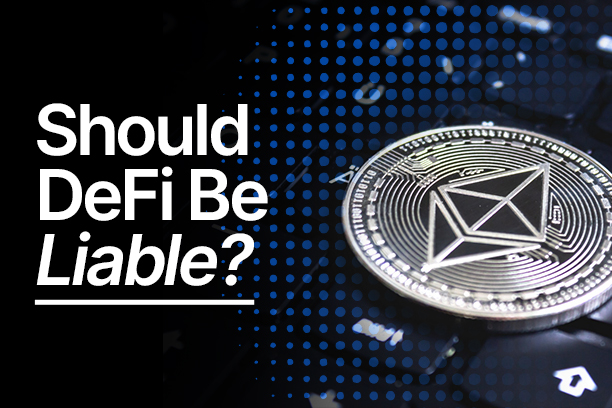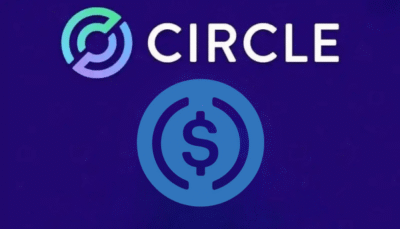The rise of decentralized finance (DeFi) has revolutionized the global financial system, offering trustless, permissionless, and borderless transactions. However, with great innovation comes great responsibility, and a major debate is now unfolding in the crypto space: Should DeFi protocols be held accountable for laundered funds?
This ethical and regulatory dilemma has come into sharp focus following high-profile hacks and illicit activities involving decentralized protocols.
The recent $1.4 billion Bybit hack, where the North Korea-backed Lazarus Group laundered stolen funds through DeFi platforms like Paraswap and ThorChain, has sparked an industry-wide debate about whether these platforms should return fees earned from illicit transactions or uphold the “code is law” principle that defines DeFi.
Matthias, speaking on the CoinRock Show, emphasized:
“Regulation or not, DeFi protocols need to decide—are they just neutral technology, or do they have a moral responsibility to prevent criminal activity?“

Should DeFi Intervene?
At the heart of this discussion lies the tension between decentralization and ethical responsibility. The entire premise of DeFi is built on autonomous smart contracts, removing the need for human intervention.
Unlike centralized exchanges, DeFi protocols do not have direct control over user funds or transactions, everything is executed based on pre-coded algorithms.
But when bad actors exploit DeFi to launder funds, the question arises:
- Should these platforms take action and return profits gained from illicit transactions?
- Would doing so undermine the decentralization values of DeFi?
Let’s break down both sides of the argument.
Arguments for Holding DeFi Protocols Accountable
Preventing Criminal Activity Will Strengthen the Industry
If decentralized finance (DeFi) continues to be a hub for illicit transactions, regulators will be left with no choice but to enforce strict restrictions on the industry.
According to a report by Chainalysis, over $2 billion was laundered through DeFi protocols in 2023 alone, highlighting the growing concerns of law enforcement agencies.
This significant volume of illicit activity has made DeFi a major target for regulatory scrutiny, increasing the likelihood of stringent measures being imposed to curb financial crimes within the sector.
Returning Illicit Gains Shows Ethical Leadership
Bybit has urged DeFi platforms to return the fees collected from stolen funds, a move that could set a significant industry precedent for cooperation.
If these platforms voluntarily assist in addressing illicit transactions, it could help reduce regulatory pressure while also improving the industry’s reputation.
Proactive measures like these may encourage a more secure and transparent DeFi ecosystem, potentially fostering greater trust among users and regulators alike.
Stay Ahead of Regulators and Take Proactive Action
The Financial Action Task Force (FATF) has cautioned DeFi platforms that they may be classified as virtual asset service providers (VASPs), which would make them subject to anti-money laundering (AML) regulations. Similarly, the U.S. Treasury has proposed stricter oversight of DeFi transactions, citing concerns about money laundering and terrorism financing.
These regulatory measures indicate growing scrutiny of the sector, emphasizing the need for compliance and transparency to mitigate financial crimes.
Arguments Against Holding DeFi Accountable
DeFi Is Supposed to Be Trustless
The core principle of DeFi is immutability, meaning that once a smart contract is deployed, no single entity should have the authority to modify transactions.
However, if protocols begin manually reversing transactions, it raises a fundamental question about their true level of decentralization. Such actions could undermine the very essence of DeFi, blurring the line between decentralized and centralized financial systems.
It Sets a Dangerous Precedent
If decentralized autonomous organizations (DAOs) choose to return illicit funds in this instance, it raises the question of whether they will be expected to do so in every future case.
This could set a precedent that may ultimately lead to governments demanding intervention in politically sensitive financial transactions. Such a shift could challenge the fundamental principles of decentralization and autonomy, potentially reshaping the role of DAOs in the financial ecosystem.

Lack of Infrastructure to Track Illicit Funds
Unlike banks and centralized exchanges, most DeFi protocols do not have Know Your Customer (KYC) and Anti-Money Laundering (AML) procedures in place, making it challenging to differentiate between legal and illicit transactions.
If DeFi were compelled to adopt full compliance measures, it could risk losing its permissionless nature and ultimately resemble centralized finance (CeFi). This shift could undermine the core principles of decentralization, raising concerns about the future of DeFi as a truly open and autonomous financial system.
Matthias summed up the challenge, saying:
“If DeFi protocols start reversing transactions, where does it end? The beauty of blockchain is its neutrality—if we turn DeFi into another bank, we lose everything that makes it powerful.“
Can DeFi and Ethics Coexist?
The solution may lie in a middle ground where DeFi remains trustless and decentralized while also taking proactive steps to deter financial crime.
One possible approach is automated risk monitoring, where blockchain analytics firms like Chainalysis and TRM Labs develop AI-driven tools that flag suspicious transactions in real time.
Instead of manual intervention, DAOs could integrate these tools to identify and prevent money laundering without compromising decentralization.
Another potential solution is industry self-regulation, where DeFi projects establish voluntary best practices for handling illicit transactions rather than waiting for governments to enforce compliance.
A decentralized “watchdog” DAO could oversee major DeFi protocols to ensure ethical standards are upheld.
Additionally, hybrid compliance models could offer a balanced approach, as seen with platforms like Aave Arc and Compound Treasury, which have introduced whitelisted KYC pools for institutional investors.
A dual-layer system could allow users to choose between fully permissionless DeFi and compliant pools with additional safeguards, ensuring both regulatory alignment and decentralized financial freedom.
Defining Moment for DeFi
The Bybit vs. DAO controversy is just the beginning of what will likely become an ongoing debate in the crypto world. DeFi’s future hinges on how the industry balances decentralization with ethical responsibility.
If DeFi platforms ignore the issue completely, they risk being shut down by regulators. But if they become too centralized, they lose the very freedom that makes them revolutionary.
The best path forward is innovation, leveraging blockchain’s transparency and smart contract capabilities to enhance security without compromising its core values. DeFi can evolve without losing its essence, but it must do so on its own terms.





